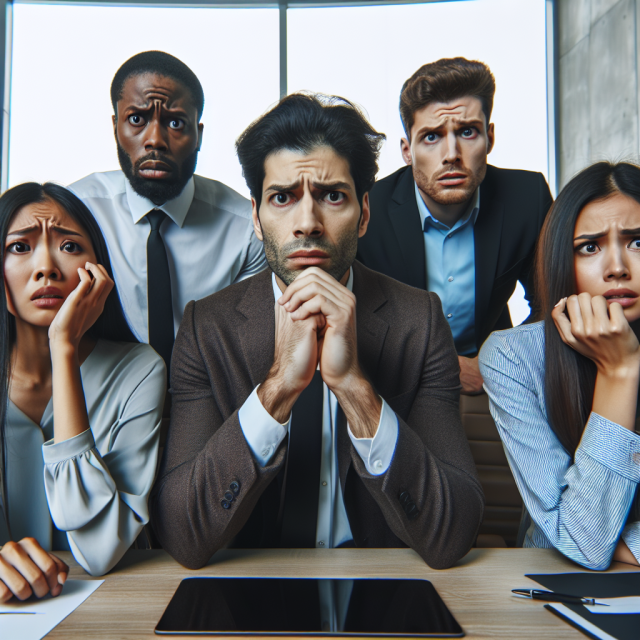Table of Contents
Understanding Anxiety Triggers
We all feel anxious at times, but for some, anxiety isn’t just a passing worry—it’s a constant battle. If you struggle with anxiety, you know how certain situations, people, or even thoughts can suddenly set off a wave of fear, worry, or panic. These anxiety triggers can be unpredictable, making daily life feel overwhelming.
Understanding what sets off your anxiety is the first step in managing it. Whether it’s social situations, financial stress, or past trauma, knowing your triggers can help you take control and break free from the cycle of anxiety.
Let’s explore some of the most common anxiety triggers and effective ways to manage them.
Common Anxiety Triggers and Their Impact
While anxiety triggers can be different for everyone, there are several common causes that affect many people.
1. Stressful Life Events
Big life changes—whether positive or negative—can trigger anxiety. Events like moving, starting a new job, divorce, or losing a loved one can create uncertainty and stress.
2. Social Situations and Public Speaking
For people with social anxiety disorder, everyday interactions like meeting new people, speaking in front of a crowd, or attending social gatherings can be overwhelming.
3. Financial Worries
Money problems are a huge source of stress. Whether it’s debt, job loss, or struggling to pay bills, financial uncertainty can trigger panic and excessive worry.
4. Health Concerns
Living with a chronic illness or fear of serious health issues can heighten anxiety. Many people experience health-related anxiety, constantly worrying about symptoms or potential diseases.
5. Relationship Issues
Conflict, breakups, or feeling neglected by a partner can trigger deep-seated anxiety. Emotional pain can often manifest as physical symptoms, making it hard to concentrate or function.
6. Lack of Sleep
Sleep and anxiety are deeply connected. Lack of rest makes the brain more sensitive to stress, increasing the likelihood of panic attacks and heightened anxiety.
7. Trauma and Past Experiences
People who have experienced abuse, accidents, or PTSD may find that certain sounds, smells, or situations trigger anxious memories and feelings.
8. Caffeine and Stimulants
Many people don’t realize that caffeine, nicotine, and even certain medications can trigger anxiety symptoms. These substances can make the heart race and create a sense of panic.
How to Identify Your Personal Anxiety Triggers
Understanding your own triggers can help you create a plan to reduce anxiety and regain control. Here’s how:
1. Keep a Journal
Track your anxiety symptoms and write down when they happen, what you were doing, and how you felt. Patterns will start to emerge over time.
2. Notice Physical Symptoms
Anxiety isn’t just mental—it’s physical too. Pay attention to signs like racing heart, sweating, stomachaches, or dizziness when you feel anxious.
3. Reflect on Your Thoughts
Ask yourself:
- What was I thinking before the anxiety started?
- Was there a specific event or worry that triggered this feeling?
- Is my reaction based on fear or reality?
4. Talk to a Therapist
A mental health professional can help identify hidden triggers and provide personalized coping strategies.
Practical Strategies to Manage Anxiety Triggers
Once you identify your anxiety triggers, the next step is learning how to manage them effectively.
1. Deep Breathing and Grounding Techniques
When anxiety strikes, use the 4-7-8 breathing method:
- Inhale for 4 seconds
- Hold for 7 seconds
- Exhale for 8 seconds
Grounding exercises, like focusing on five things you can see, hear, or touch, can help bring your mind back to the present.
2. Exercise and Movement
Physical activity reduces stress hormones and increases endorphins. Even a short walk or stretching routine can help calm the mind.
3. Create a Routine
Having a structured daily schedule reduces uncertainty and helps prevent unexpected anxiety triggers.
4. Limit Caffeine and Alcohol
If caffeine or alcohol worsen your anxiety, try cutting back or switching to herbal teas.
5. Challenge Negative Thoughts
Ask yourself:
- Is this thought based on facts or fear?
- What’s the worst that could happen?
- Have I gotten through this before?
Challenging negative thoughts helps reframe anxiety in a more realistic way.
Medical Treatments and Therapy for Anxiety
For those who struggle with chronic anxiety, medical treatment may be necessary.
1. Therapy Options
- Cognitive Behavioral Therapy (CBT): Helps rewire negative thought patterns.
- Exposure Therapy: Gradual exposure to triggers to reduce fear over time.
2. Medications for Anxiety
- Selective Serotonin Reuptake Inhibitors (SSRIs): Prozac, Zoloft, Lexapro
- Benzodiazepines: Xanax, Ativan (used for severe anxiety, but can be addictive)
- Beta Blockers: Propranolol (helps with physical symptoms like a racing heart)
Always talk to a doctor before starting any medication.
When to Seek Professional Help
If anxiety is disrupting your life, it’s important to reach out for help. Signs you should see a professional include:
- Anxiety attacks that feel uncontrollable
- Avoiding daily activities due to fear
- Physical symptoms like chest pain or trouble breathing
- Constant racing thoughts or insomnia
A therapist or doctor can help create a treatment plan that works for you.
FAQs About Anxiety Triggers
1. Can anxiety triggers be completely eliminated?
Some triggers can be avoided, but others may need coping strategies to manage them effectively.
2. How do I stop overthinking everything?
Mindfulness techniques, CBT, and challenging negative thoughts can help reduce overthinking.
3. What’s the best natural remedy for anxiety?
Deep breathing, meditation, and herbal supplements like chamomile and magnesium may help.
4. Can diet affect anxiety?
Yes! Processed foods, caffeine, and sugar can worsen anxiety, while omega-3s and whole foods can help.
5. How can I help a loved one with anxiety?
Listen without judgment, encourage them to seek help, and avoid minimizing their feelings.
For more support, visit HealingWell.com.
Disclaimer:
This content is not medical advice. For any health issues, always consult a healthcare professional. In an emergency, call 911 or your local emergency services.
